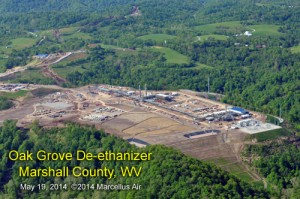WVU Researchers Focus on Reducing Shale Drilling Risks
From an Article by David Bradley, NGI Shale Daily, June 27, 2014
A series of precautions, some of which are already being used, can help reduce environmental and health risks associated with horizontal drilling and hydraulic fracturing (fracking), according to a study by researchers at West Virginia University (WVU).
The study, published in Environmental Science: Processes & Impacts, includes recommendations to address air, noise and light pollution, water management, and engineering flaws associated with horizontal gas well development and completion. The researchers reviewed environmental literature relevant to shale gas development and examined more than 15 Marcellus Shale facilities in northern West Virginia.
“These facilities are often located within a few hundred meters of homes and farms, many of which are supplied by shallow water wells,” said Paul Ziemkiewicz, one of four co-authors of the study and director of the West Virginia Water Research Institute. “As a result, many of the public’s concerns focus on air and groundwater pollution as well as light and noise associated with horizontal drilling and well completion. This study was initiated largely due to these public concerns.”
The researchers concluded that well sites should have properly constructed containment structures in the event of a well blowout or large fluid leak, and that all wells should be pressure tested before fracking operations, and should include blowout preventers to bring any uncontrolled fluid release under control quickly. Other recommendations, some of which are already incorporated by the industry and regulatory agencies, include:
Waste transportation plans — The planned disposal of liquid and solid waste should be a required and enforceable component of well permits;
Pits and impoundments — Better training is needed for regulatory and industry field inspectors to significantly improve the design and construction of storage pits and impoundments for liquid waste;
Air monitors and sound meters — Installation of air monitors and sound meters at sensitive locations and connect to a central monitoring station;
Noise reduction — Route traffic away from residences where possible, use better wetting agents to reduce peak dust exposures, and stage traffic to reduce both diesel exhaust concentrations and noise; and
Performance-based standards — Require placement of continuous monitoring instruments near sensitive locations for feedback and process control at drill sites for air, light and noise.
They also called for further study of solid wastes from fracking, and research to identify the source of airborne contaminants found at horizontal drilling operations.
Responsible utilization of shale gas is one of the focus areas of WVU’s “Mountains of Excellence” research program, which was introduced in 2012.

